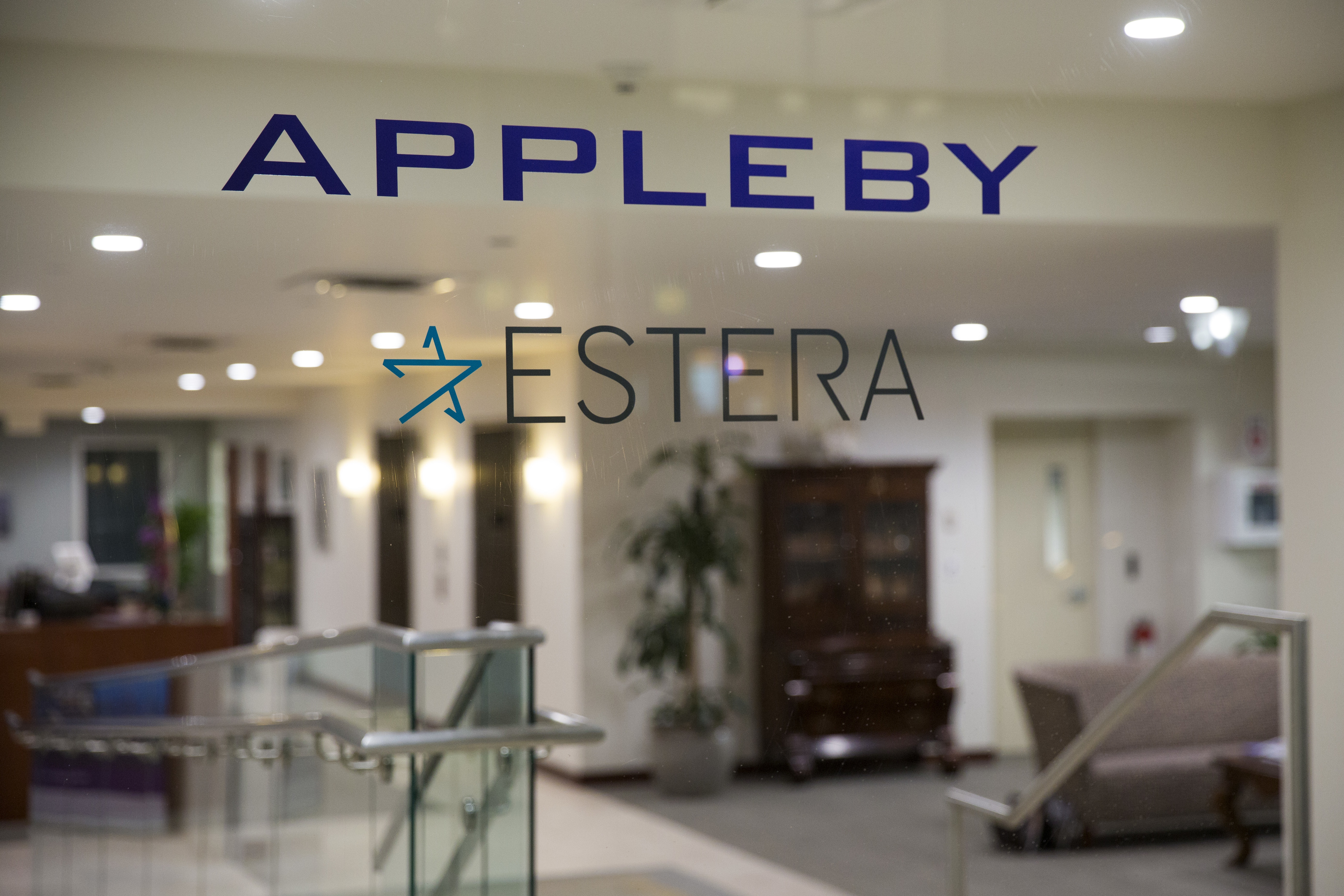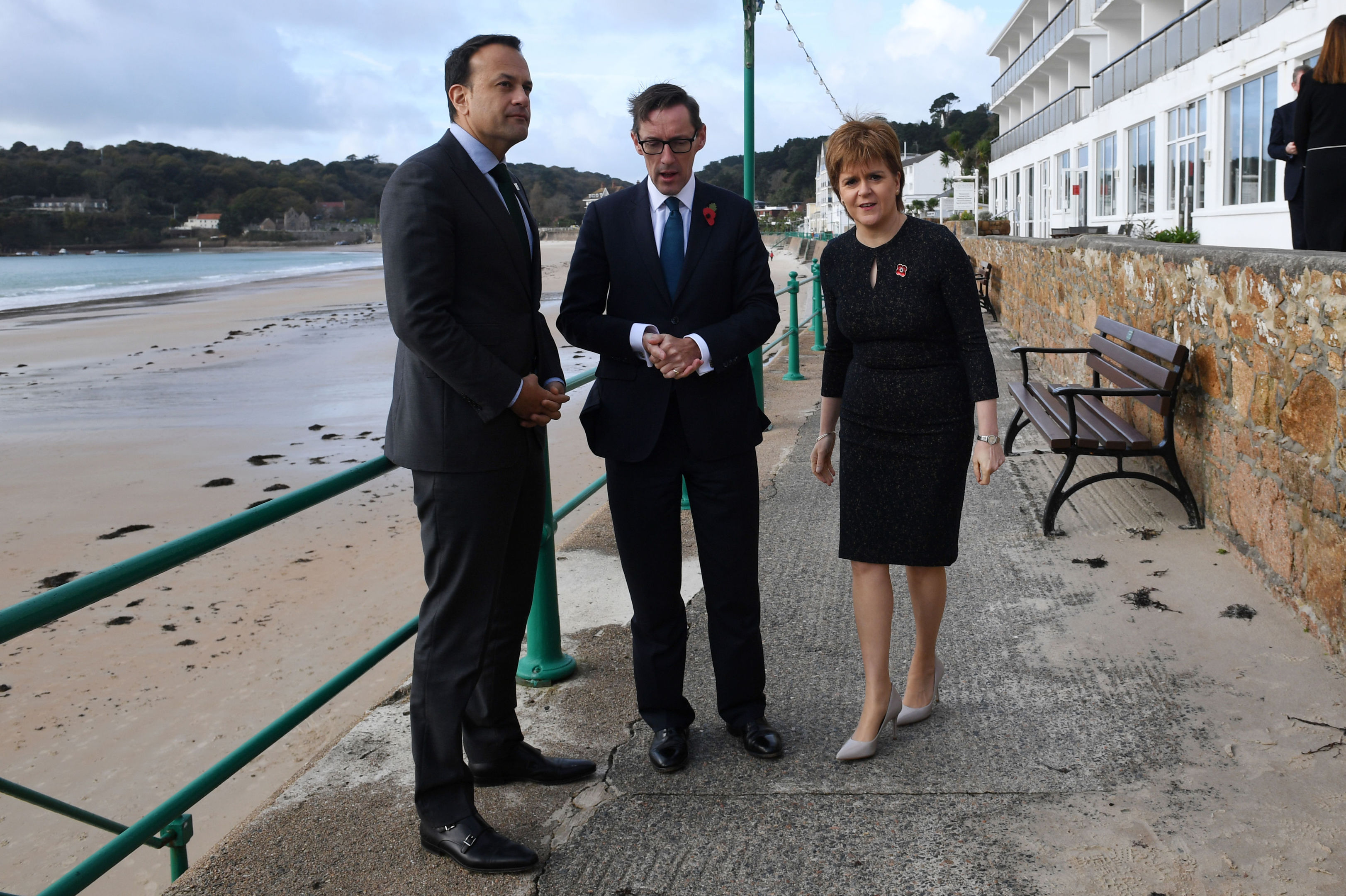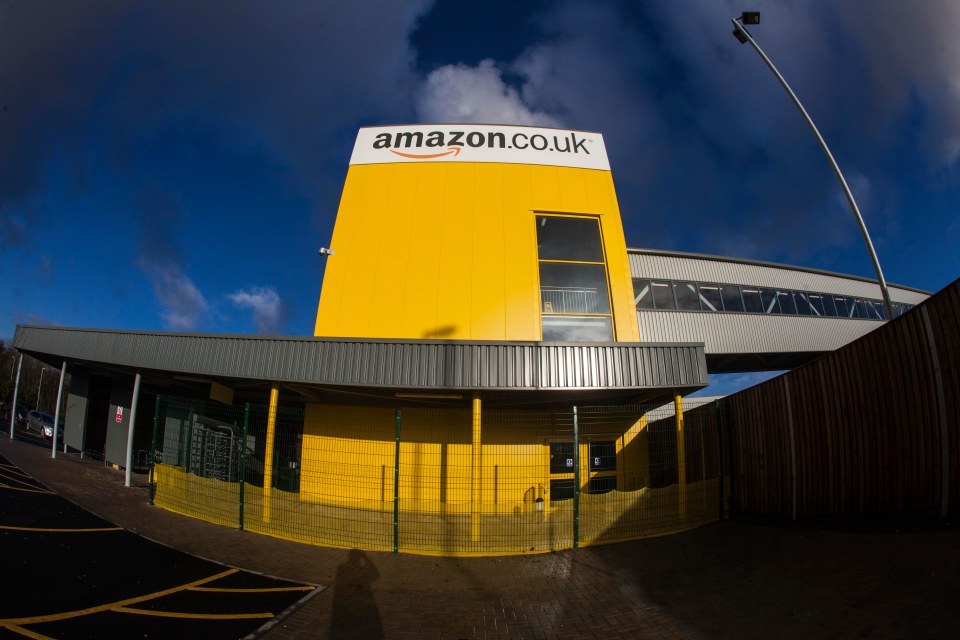
THE offshore operations of some of Scotland’s biggest companies are detailed in the Paradise Papers, we can reveal.
Leading firms in commerce, finance, and industry are named as clients of law firm Appleby.
Engineering giants Weir Group, chemical multinational Ineos, which operate the Grangemouth refinery, and investment group Aberdeen Asset Management (AAM) are among the firms named in the documents detailing their business with the law firm, based in Bermuda.
Appleby specialises in offshore legal services, helping financial institutions, global corporations and millionaires register companies and trusts overseas and the leak of 13.4 million documents details the previously-confidential business of 120,000 organisations and individuals.
The leak detailing their clients’ offshore operations last week put the spotlight on the complex overseas business arrangements of the world’s wealthiest companies, institutions, and public figures, including the Queen, Apple and F1 driver Lewis Hamilton.
Appleby’s work is often intended to reduce clients’ tax liabilities but there is nothing to suggest any of the Scottish firms have acted illegally.
Part of Appleby’s work for some of the firms involved arranging payment of salaries and bonuses to some of their 30,000 staff from offshore accounts.
Some of these bonus schemes have been questioned by the tax authorities with staff paying just 10% on bonuses instead of 40% they should have paid if they were in the highest income tax bracket. They might also mean less national insurance contributions for employers.
In 2016, the UK Supreme Court ordered banking giants Deutsche Bank and USB to pay taxes on bonuses they had paid to investment bankers offshore 12 years previously.
After being contacted yesterday, the firms said their business with Appleby had been routine and denied going offshore to avoid tax.
The Weir Group said: “The group’s employee benefit trust is purely administrative with all benefits paid to our employees around the world subject to local taxation.
“For our UK based employees that means paying all PAYE and national insurance contributions in full. The trust is registered with HMRC and fully complies with UK legislation.
“The group gains no corporation tax advantage from the trust.”
Ineos at first denied using Appleby but later came back to say it had used the law firm in the past but not for several years.
It denied the law firm were involved in anything to do with the company’s bonus scheme.
Aberdeen Asset said it had used a company associated with Appleby in Jersey to help pay bonuses to staff under a staff share scheme.
He said the payments were all “fully taxed in the UK at UK levels” and that it used an offshore structure for the payments because of the “quality of service provided by the firm” and not in an effort to minimise its tax bill.
Meanwhile, there are calls for Nicola Sturgeon to close a loophole that allows offshore companies to face less scrutiny in what properties they own in Scotland compared to the rest of the UK.
At a meeting of the British-Irish Council, the First Minister demanded more transparency and the tightening of regulations allowing firms and individuals to slash their tax bills.
Former Manchester United boss Sir Alex Ferguson’s £340k shares in offshore property company revealed
She said: “We must have rules and regulations in place that properly promote tax transparency but also operate to close down any tax loopholes people are using in order to unfairly minimise the tax that they pay.”
But campaigners said action not words are needed amid escalating fears Scotland is becoming a soft touch for anyone wanting to hide their wealth in property.
The Paradise Papers revealed how unscrupulous firms use offshore structures to get round paying tax while buying and selling land across the UK.
The Scottish Government previously dropped a proposal banning the overseas ownership of land and property in Scotland but critics claim it is more difficult and expensive to discover who owns property here than in the rest of Britain.
Last week the Land Registry of England and Wales made a move to give free access to the public that allows them to see what British and overseas companies hold land and buildings in England and Wales.
The Commercial and Corporate Ownership Data and Overseas Companies Ownership Data – published last Tuesday – contain more than three million rows of data including the address, company’s name, price paid and country of incorporation along with other information about the firms.
The free service casts a light on the secretive offshore firms who are buying up vast swathes of English and Welsh property for the first time.
In London, it is estimated 40,000 properties are owned by secretive offshore companies leading to fears it could be used by criminals to hide their ill-gotten gains.
But in Scotland the same information is expensively restrictive.
Discovering the properties owned in Scotland by an overseas firm or individual from the managers of the Scottish land registry, Registers of Scotland, would cost up to £1600.
Campaigners demanded Scottish authorities make a register of which firms own property in Scotland freely available.
Green MSP Andy Wightman, said: “The English and Welsh Land Registry are years ahead of Scotland in openness and transparency.
“Last week’s events show us how important it is we have full disclosure on which firms own what in Scotland.
“Registers of Scotland charge fees for searches like this, which amount to £24 per individual title. But the amount of money RoS make in these searches is minuscule compared to the money they make in things like registration of property sales.
“It means the shortfall from making this information available free could easily be absorbed in other costs.”
In 2015, The Sunday Post revealed more than 2100 parcels of Scottish land had been snapped up through offshore firms based in the world’s premier tax havens.
Labour MSP James Kelly said: “Firms not paying the correct tax rob our cash-strapped public services of vital funds and must stop.”
Steve Goodrich, of anti-corruption campaign group Transparency International, said Scotland could be viewed as being more attractive to criminals now there was more scrutiny in England and Wales.
He said: “It is no secret UK property has been used by corrupt elites and kleptocrats as a safe haven for their illicit wealth.
“Whilst much of this has made its way into London, anywhere lavish with international appeal – be it a Highland hunting lodge or a country castle – could be a target.
“Without the right defences in place, Scotland is exposed to those seeking impunity for their crimes.”
A spokesperson for Registers of Scotland said they would make some limited information available next year as to which overseas companies owned Scottish property.
She said: “We are currently working on an overseas ownership dataset.
“This will be published on our website in the New Year, free of charge”
FM quizzed as public cash goes to low-tax firms
Nicola Sturgeon has been accused of throwing stones in a glass house after the leak of the Paradise Papers.
The First Minister last week hit out at the UK Government’s approach to tackling tax avoidance and evasion, claiming its record was a matter of “regret and shame”.
But Tory finance spokesman Murdo Fraser yesterday highlighted how the Scottish Government gave millions of pounds worth of grants to retail giant Amazon, which has come under fire for how little tax it pays in the UK.
Mr Fraser said: “Nicola Sturgeon needs to put her house in order before she starts criticising others.
“She was a member of the SNP Government which gave £10 million in grants and assistance to Amazon to set up a
fulfilment centre in Dunfermline, notwithstanding the questionable record that company has when it comes to tax.”
He added: “The public concern around the Paradise Papers is understandable but it is important to put all of this into context because the reality is that the UK’s record when it comes to reducing tax avoidance is a sound one.”
Ms Sturgeon last week urged parties across Holyrood to back her call for full devolution of powers over tax avoidance and evasion to Scotland, to enable the “crackdown people want” following the Paradise Papers scandal.
HMRC estimates showed the Treasury lost £6.9 billion through tax evasion in 2015/16 and the UK Government has been criticised for the number of job cuts at the tax collecting agency.
Labour’s James Kelly has called for ministers to cancel public contracts where companies have been shown to have participated in tax avoidance.

Enjoy the convenience of having The Sunday Post delivered as a digital ePaper straight to your smartphone, tablet or computer.
Subscribe for only £5.49 a month and enjoy all the benefits of the printed paper as a digital replica.
Subscribe
